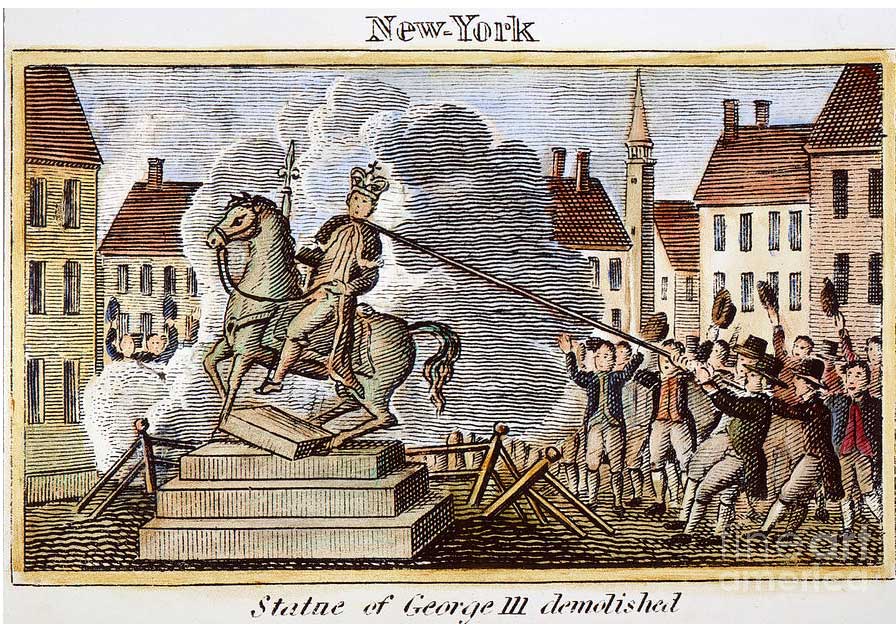Sons of Liberty founded

When word of the enactment of the Stamp Tax spread through the colonies protest began In Boston riots developed directed against both Royal officials and anyone who agreed to distribute the stamps. The mob directed its anger at Andrew Oliver who had agreed to be an agent of the stamp tax. They hung him in effigy, and threatened him if he did not resign which he did.
The rioting quickly spread to other colonies. Throughout the colonies the agents for the stamp tax were forced to resign. Behind much of the rioting was a new organization that had been founded to defend the liberties of the colonist..
The passage of the Stamp Act created the first sustained opposition to the British. The opposition was not only political. The opposition also took the form of demonstrations, rioting and other acts of violence. The violent actions were not spontaneous. The actions were coordinated and implemented by a new organization called "The Sons of Liberty". The Sons of Liberty was founded in the summer of 1765 by a group of shopkeepers and artisans in Boston. The founders of the group were not the most prominent of Bostons citizens. However, the group included Benjamin Edes, who was a printer and John Gil who ran the Boston Gazette, thus assuring they were able to spread their message.
The first action the Sons of Liberty initiated took place on August 14, 1765. The Sons burned an effigy of Andrew Oliver who was slated to become the Commissioner of the Stamps for Massachusetts. That night, a mob burned part of Olivers property in Boston and ransacked an abandoned house belonging to Oliver.
The Sons of Liberty quickly spread to all of the colonies. Their goal was to undermine all attempts to enforce the Stamp Act. Their actions were successful. There was no royal force available to counter the Sons of Liberty. The actions of the Sons of Liberty were instrumental in forcing the British to repeal the Stamp Act. After their initial victory, the Sons of Liberty continued their anti-British agitations, with such actions as planting Liberty trees in New York, and burning of the British revenue cutter, "The Gaspee".
 >
>